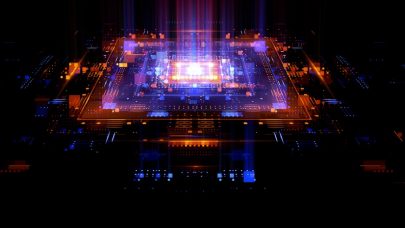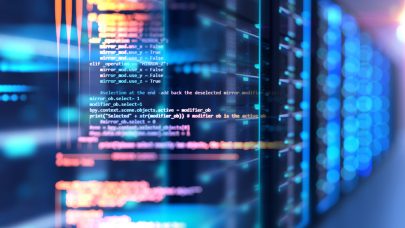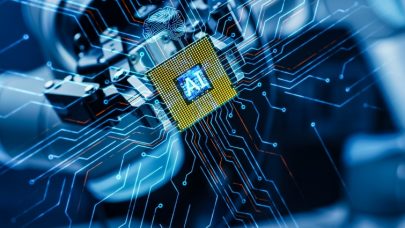Oct. 27, 2021 — ACM, the Association for Computing Machinery, and the IEEE Computer Society announced today that Mert Hidayetoglu of the University of Illinois at Urbana-Champaign and Tirthak Patel of Northeastern University are the recipients of the 2021 ACM-IEEE CS George Michael Memorial HPC Fellowships. Hidayetoglu is recognized for contributions in scalable sparse applications using fast algorithms and hierarchical communication on supercomputers with multi-GPU nodes. Patel is recognized  for contributions toward making current error-prone quantum computing systems more usable and helping HPC programmers solve computationally challenging problems.
for contributions toward making current error-prone quantum computing systems more usable and helping HPC programmers solve computationally challenging problems.
Mert Hidayetoglu
Sparse operations are the main computational workload for numerous scientific, AI and graph analytics applications. Most of the time, the costs of computation and communication for distributed sparse operations constitute an overall performance bottleneck.
Hidayetoglu’s research investigates this bottleneck at two specific points: memory accesses and communication. He has proposed and demonstrated two novel techniques: sparse matrix tiling and hierarchical communications. The first technique, sparse matrix tiling, accelerates sparse matrix multiplication on a single GPU by the preprocessing of sparse data access patterns and constructs necessary tiling data structures accordingly. The second technique, hierarchical communications, eliminates the communication bottleneck, which typically dominates end-to-end execution time when large problems at terabyte (TB) scale fit on only hundreds of GPU’s. Hidayetoglu’s technique performs sparse communications (depending on the sparsity pattern of the matrix) locally-first to reduce the costly data communication across nodes.
Hidayetoglu has successfully demonstrated these techniques in award-winning applications, including large-scale X-ray imaging at Argonne National Laboratory and accelerated sparse deep neural network inference at IBM. Related papers at SC20 and HPEC20 won the best paper award and the Sparse Challenge championship title, respectively.
Tirthak Patel
Patel’s research addresses the challenge of erroneous program executions on quantum computers and provides robust solutions to improve their reliability. Despite rapid progress in quantum computing, prohibitively high noise on existing near-term intermediate-scale quantum (NISQ) computers remains a fundamental roadblock in the wider adoption of quantum computing. Due to the high noise, program executions on existing quantum computers produce erroneous program outputs. Quantum computing programmers largely lack the tools to estimate the correct output from these noisy program executions.
Patel, advised by Devesh Tiwari at Northeastern University, is designing cross-layer system software for extracting meaningful output from erroneous executions on quantum computers. In particular, he first led the effort to benchmark and characterize the performance of different quantum algorithms on IBM quantum computers. Patel leveraged insights gained from this measurement-based experimental effort to inform the design of his novel tools and methods, including VERITAS, QRAFT, UREQA, and DisQ.
For example, his technique VERITAS demonstrates how carefully-designed statistical methods can mitigate errors post-program execution and help programmers deduce the correct program output effectively. Patel’s other solution, QRAFT, leverages the reversibility property of quantum operations to deduce the correct program output, even when the program is executed on qubits with relatively high error rates. Both approaches relieve programmers and compilers from the burden of selecting the qubits with the least error rate, a significant departure from existing approaches in this area. Patel’s work lowers the barrier to entry into quantum computing for HPC programmers by open-sourcing multiple novel datasets and system software frameworks.
About the ACM IEEE CS George Michael Memorial Fellowship
The ACM-IEEE CS George Michael Memorial HPC Fellowship is endowed in memory of George Michael, one of the founders of the SC Conference series. The fellowship honors exceptional PhD students throughout the world whose research focus is on high performance computing applications, networking, storage, or large-scale data analytics using the most powerful computers that are currently available. The Fellowship includes a $5,000 honorarium and travel expenses to attend the SC conference, where the Fellowships are formally presented.
About ACM
ACM, the Association for Computing Machinery, is the world’s largest educational and scientific computing society, uniting computing educators, researchers and professionals to inspire dialogue, share resources and address the field’s challenges. ACM strengthens the computing profession’s collective voice through strong leadership, promotion of the highest standards, and recognition of technical excellence. ACM supports the professional growth of its members by providing opportunities for life-long learning, career development, and professional networking.
About SC
SC, the International Conference for High Performance Computing, sponsored by ACM and IEEE-CS offers a complete technical education program and exhibition to showcase the many ways high performance computing, networking, storage and analysis lead to advances in scientific discovery, research, education and commerce. This premier international conference includes a globally attended technical program, workshops, tutorials, a world class exhibit area, demonstrations, and opportunities for hands-on learning.
Source: ACM
































































